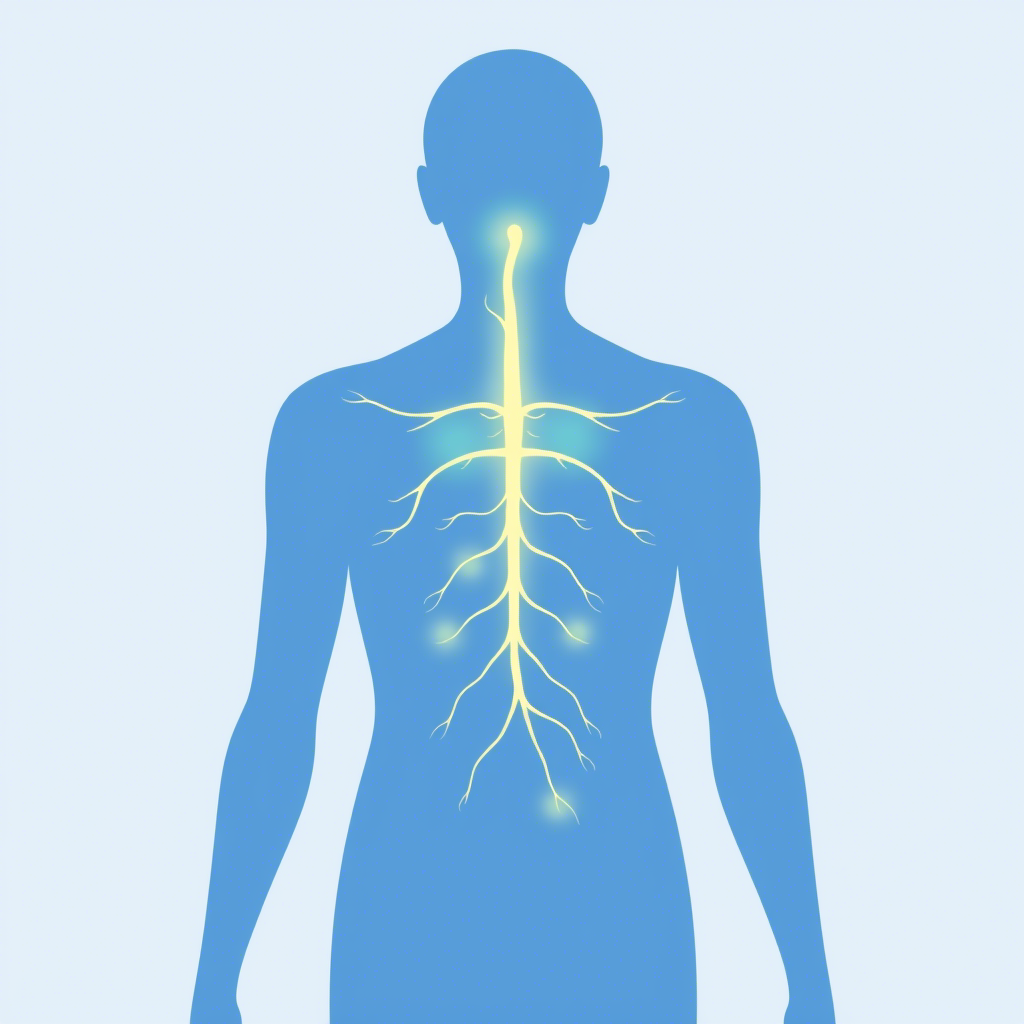
Finding Calm in a Chaotic World
If you’re constantly juggling work, family, and endless notifications, you’re not alone. The modern world has many of us living in a state of chronic stress. But what if your body already had a built-in «reset switch» to help calm your nervous system? Meet the vagus nerve: a powerful tool for reducing anxiety, improving emotional regulation, and helping you feel grounded — no supplements, no expensive gadgets required.
In this guide, we’ll explain what the vagus nerve is (in plain English), why it matters for your mental health, and most importantly: how to stimulate it with quick, science-backed exercises that fit easily into your busy life.
What Is the Vagus Nerve and Why Should You Care?
The vagus nerve is the longest cranial nerve in your body. It runs from your brainstem down through your neck and into your chest and abdomen. Think of it as the highway between your brain and the rest of your body.
Its job? Helping regulate key functions like your heart rate, digestion, and mood. It’s also a cornerstone of the parasympathetic nervous system — your «rest and digest» mode, which is the natural counterbalance to stress and anxiety.
When the vagus nerve is well-toned (yes, like a muscle), you respond to stress more calmly. When it’s underactive, even small challenges can feel overwhelming. The good news? You can «tone» it with simple daily practices.
7 Easy Vagus Nerve Exercises You Can Do Today
- Deep Diaphragmatic Breathing
- How: Inhale deeply through your nose for 4 seconds, letting your belly rise. Exhale slowly through your mouth for 6-8 seconds.
- Why it works: Stimulates the vagus nerve and shifts your body into a calm state.
- When: Try this before meetings, after arguments, or anytime you feel tense.
- Cantar, Tararear o Hacer Gárgaras
- How: Spend 1-2 minutes humming your favorite tune, chanting «Om,» or gently gargling water.
- Why: These activities activate muscles in the throat and vocal cords, areas innervated by the vagus nerve.
- When: In the shower or during your commute.
- Cold Exposure
- How: Splash cold water on your face, take a short cold shower burst, or apply a cold compress to your neck.
- Why: Activates the vagus nerve through the diving reflex, which lowers heart rate and calms the system.
- When: Great way to reset between tasks or shake off anxiety.
- Loving-Kindness Meditation
- How: Sit quietly and mentally send kind thoughts to yourself, then to others: «May I be happy, may I be safe.»
- Why: Promotes parasympathetic activity and social connection, both vagus-friendly.
- When: As a daily ritual, especially in the morning or before bed.
- Gentle Massage (Neck & Ears)
- How: Use your fingers to massage the sides of your neck and around your ears in slow, circular motions.
- Why: Stimulates the auricular branch of the vagus nerve.
- When: While applying skincare, during a break, or when feeling overwhelmed.
- Support Your Gut Health
- How: Include fermented foods (like yogurt, kimchi, kefir) or take a quality probiotic.
- Why: A healthy gut sends positive signals via the vagus nerve to your brain.
- When: Make it a consistent part of your meals.
- Laughter and Social Connection
- How: Watch a funny video, call a friend, or join a class you enjoy.
- Why: Positive social engagement and laughter are natural vagus nerve boosters.
- When: Daily, even if it’s just for five minutes.
How to Make Vagus Stimulation Part of Your Day
You don’t need an hour-long ritual. Pick 1-2 practices and sprinkle them throughout your day:
- Morning: Deep breathing and a cold splash
- Afternoon: Gargling or humming
- Evening: Loving-kindness meditation or a gut-friendly dinner
Small, consistent actions are more effective than occasional intense efforts.
Conclusion: Calm is Already Within You
Your nervous system isn’t your enemy — it just needs a little help. Stimulating your vagus nerve is like giving your body a gentle nudge toward balance and peace. Whether you’re in a high-stress job, parenting on little sleep, or just trying to make it through the day, these techniques are here to support you.
You don’t have to escape to the mountains or book a spa retreat. Relief might be as close as your next breath.
